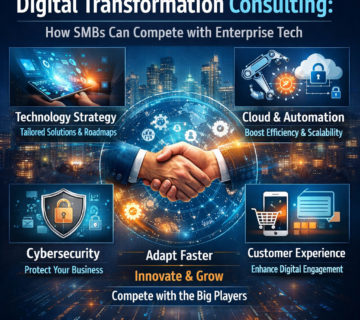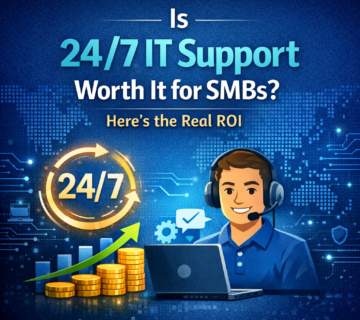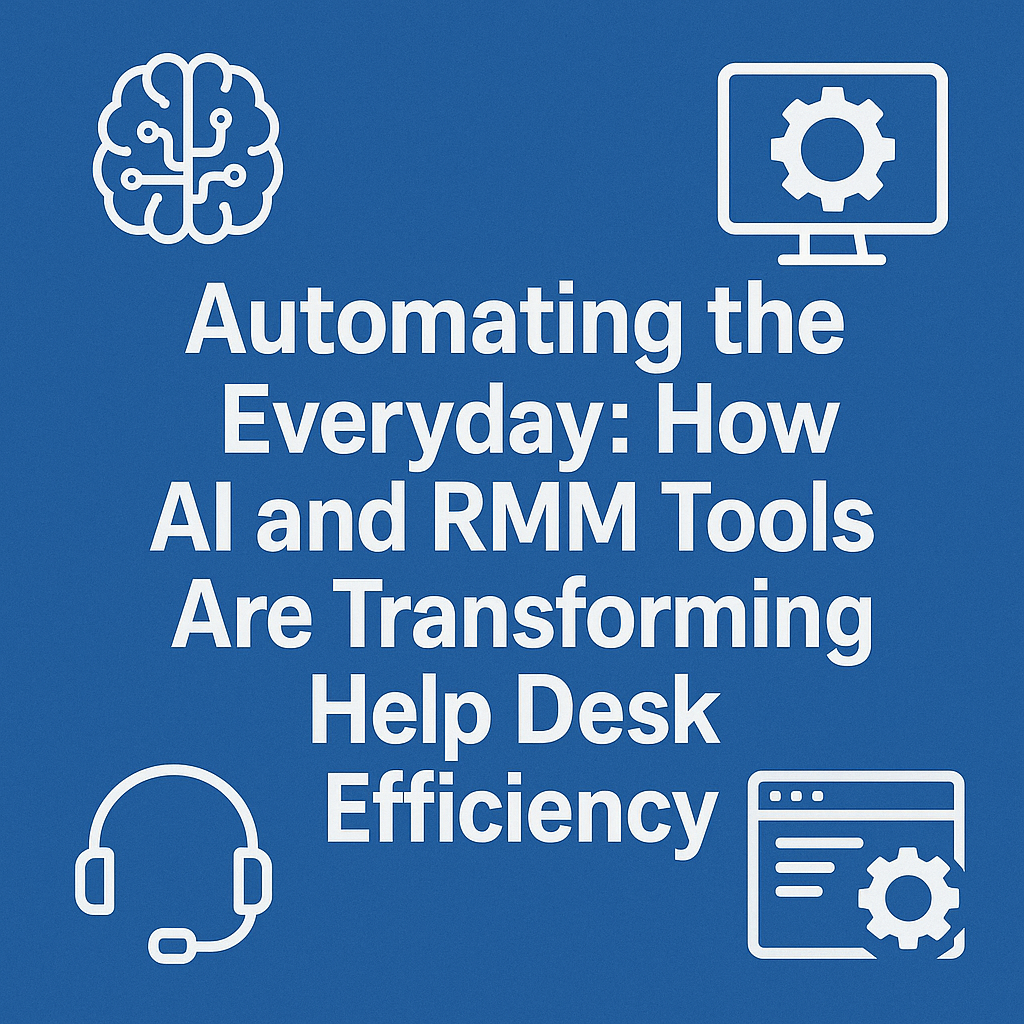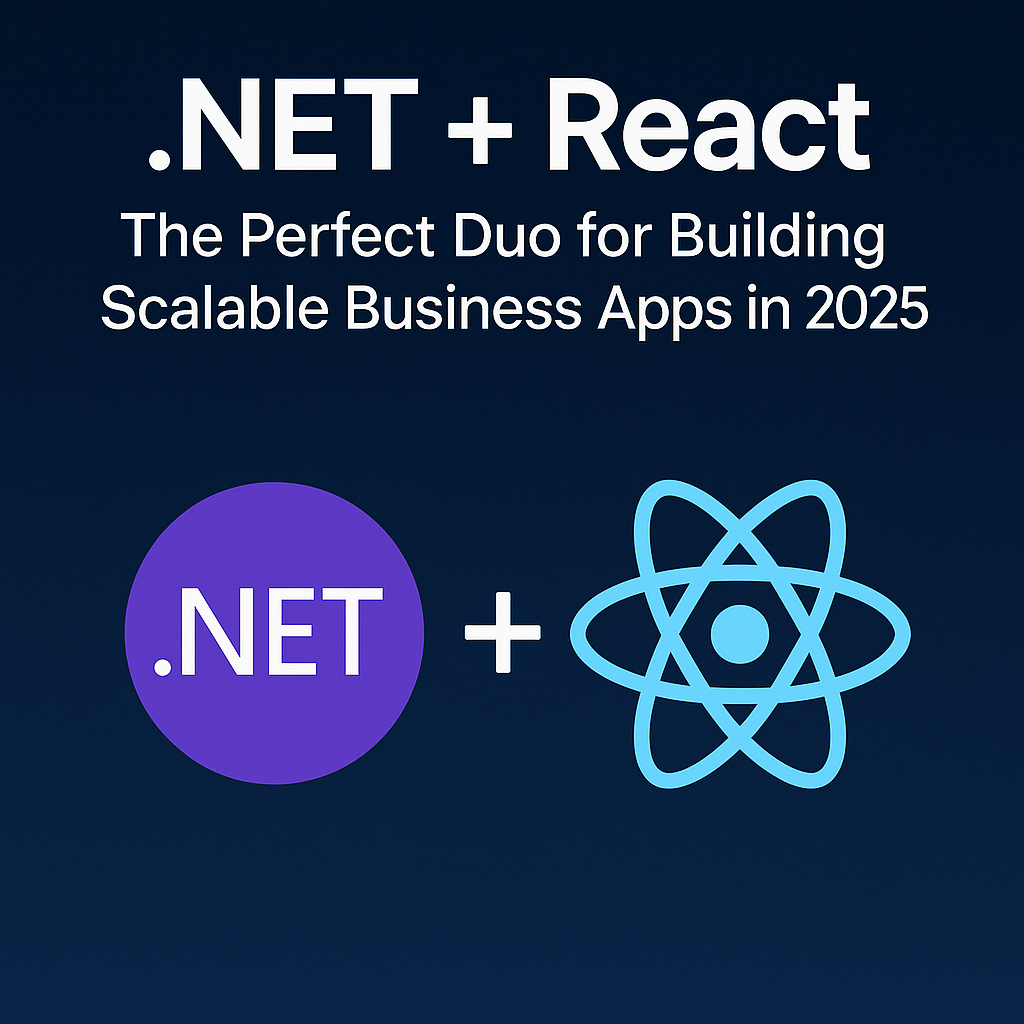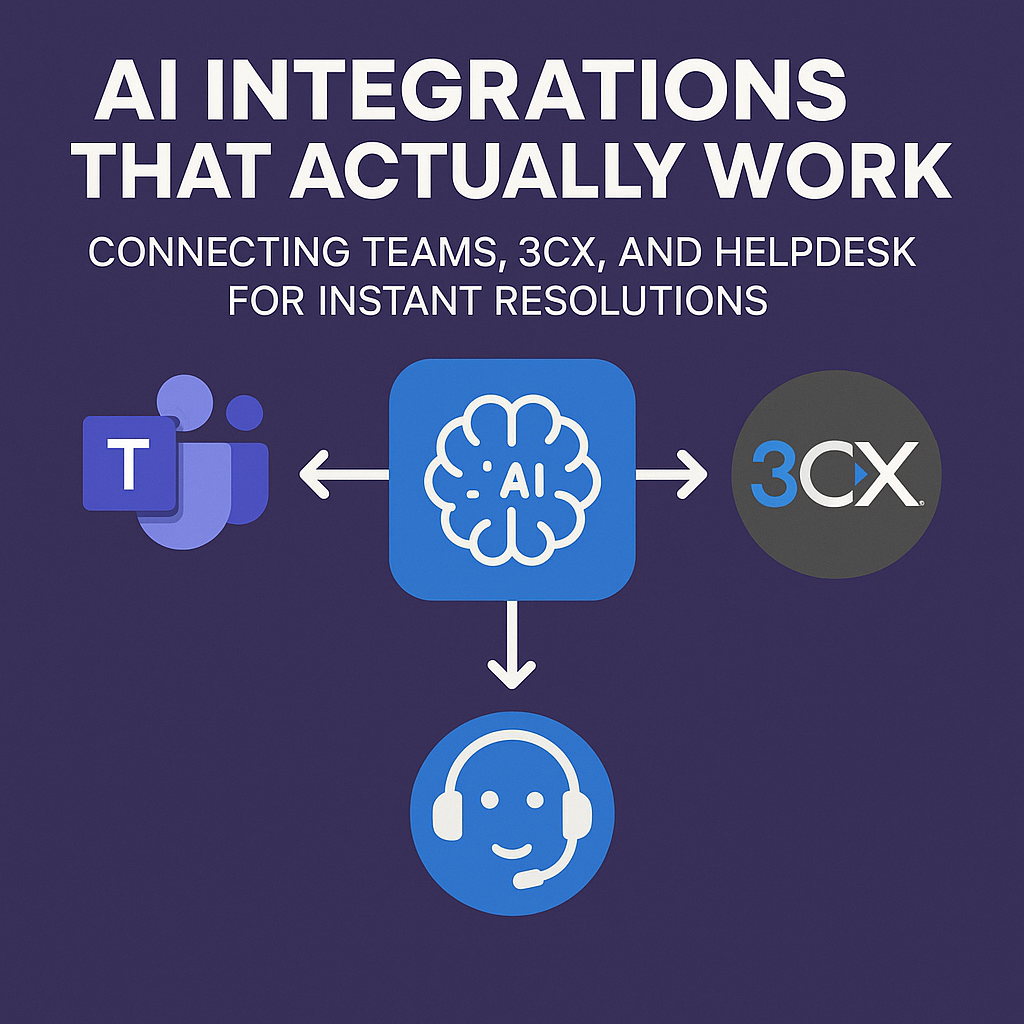Custom Software Development for SMBs: Why .NET 8 Is the Smart Choice in 2025
🎙️ Dive Deeper with Our Podcast!
.NET 8: The Enterprise Foundation for SMB Growth
Small and medium-sized businesses face a critical challenge in today’s competitive landscape: how to build software solutions that grow with their operations without breaking the bank. Off-the-shelf software often falls short when businesses need specialized workflows, integrations, or scalability. That’s where custom software development becomes a game-changer.
For SMBs exploring custom solutions in 2025, Microsoft’s .NET 8 framework stands out as a particularly smart choice. This latest iteration combines enterprise-grade stability with performance improvements that directly impact your bottom line. Let’s explore why .NET 8 deserves serious consideration for your next software development project.
The SMB Software Dilemma: Build, Buy, or Compromise?
Most small and medium-sized businesses eventually hit a wall with generic software packages. Your accounting system doesn’t talk to your inventory management tool. Your CRM can’t generate the specific reports your sales team needs. Your customer portal lacks the custom features that would set you apart from competitors.
You have three options: continue wrestling with software that doesn’t quite fit, invest in expensive enterprise platforms designed for Fortune 500 companies, or build custom solutions tailored to your exact needs. Custom software development increasingly makes financial sense for SMBs, especially when built on modern, efficient frameworks like .NET 8.
What Makes .NET 8 Different from Previous Versions?
Microsoft released .NET 8 in November 2023 as a Long-Term Support version, meaning it receives updates and support through November 2026. This three-year support window provides SMBs with stability and predictability for their software investments.
The framework brings significant architectural improvements over its predecessors. Performance benchmarks show .NET 8 applications running up to 20% faster than .NET 7 in many scenarios, with reduced memory consumption that translates to lower hosting costs. These aren’t just technical specifications, they represent real savings on cloud infrastructure and faster response times for your users.
Native ahead-of-time compilation has matured in .NET 8, allowing applications to start almost instantly. For customer-facing applications or internal tools used throughout the workday, these speed improvements enhance productivity in measurable ways. Your employees spend less time waiting for systems to load and more time accomplishing their actual work.
Security Features Built for Business-Critical Applications
Security breaches cost small businesses an average of $120,000 per incident, according to recent industry reports. When developing custom software for business operations, security cannot be an afterthought. .NET 8 incorporates multiple layers of security improvements specifically designed to protect business applications.
The framework includes enhanced authentication and authorization mechanisms that integrate seamlessly with modern identity providers. Whether you need single sign-on capabilities, multi-factor authentication, or role-based access controls, .NET 8 provides robust, battle-tested security features out of the box. This means your development team doesn’t need to reinvent the wheel for common security requirements.
Built-in protection against common vulnerabilities like SQL injection, cross-site scripting, and cross-site request forgery comes standard. The framework automatically sanitizes inputs and validates data in ways that prevent the most common attack vectors. For SMBs without dedicated security teams, these automatic protections provide essential safeguards.
Regular security patches arrive predictably throughout the Long-Term Support lifecycle. Microsoft’s security response team actively monitors for vulnerabilities and releases fixes as part of the standard update cycle. This ongoing attention to security means your custom software benefits from enterprise-level security maintenance without requiring dedicated security personnel on your payroll.
Performance That Scales with Your Business
Small businesses today often need software that works efficiently whether serving ten users or a thousand. .NET 8’s performance characteristics make it particularly well-suited for applications that need to scale alongside business growth.
The framework’s improved garbage collection and memory management mean applications use computing resources more efficiently. For cloud-hosted applications, this efficiency translates directly into lower monthly bills. A well-architected .NET 8 application might run comfortably on a mid-tier server instance where previous versions would require more expensive infrastructure.
Database operations have received particular attention in .NET 8. Entity Framework Core 8, the framework’s database access technology, includes optimizations that reduce query times and improve data throughput. When your custom software needs to generate reports, process transactions, or search through customer records, these database improvements create noticeably faster user experiences.
The framework supports both vertical scaling (running on more powerful hardware) and horizontal scaling (distributing load across multiple servers). This flexibility means your architecture can evolve with your business needs. Start with a simple single-server deployment and expand to a distributed system as your user base grows, all without fundamentally rewriting your application.
Cross-Platform Capabilities for Modern Business Needs
Today’s businesses operate across diverse technology ecosystems. Your development team might use Windows, your servers might run Linux for cost efficiency, and your employees might access applications from Windows PCs, Macs, or mobile devices. .NET 8 embraces this heterogeneous reality through true cross-platform support.
Applications built with .NET 8 run natively on Windows, Linux, and macOS without modification. This means you can develop on one platform and deploy to another based purely on business requirements rather than technical limitations. For SMBs, this flexibility often translates to significant cost savings, particularly when choosing hosting environments.
The framework includes excellent support for building web applications that work seamlessly across all modern browsers and devices. Whether your custom software needs a traditional desktop interface, a responsive web application, or mobile apps for iOS and Android, .NET 8 provides the tools to deliver consistent experiences across platforms.
Container support has become first-class in .NET 8, with optimized images and improved deployment tools. If your infrastructure strategy includes Docker or Kubernetes, .NET 8 applications deploy smoothly into containerized environments. This compatibility ensures your custom software aligns with modern DevOps practices and cloud-native architectures.
Development Speed and Maintainability
Time to market matters for SMBs developing custom software. You will get a return on your development investment sooner if you can develop and implement solutions to business issues more quickly. .NET 8 includes numerous features that accelerate development without sacrificing quality.
The framework ships with extensive libraries covering common business application needs: data access, web services, authentication, logging, configuration management, and more. Developers spend less time building infrastructure and more time implementing your specific business logic. This comprehensive standard library reduces external dependencies and simplifies long-term maintenance.
Strong typing and modern language features in C# 12 (the programming language used with .NET 8) catch errors during development rather than in production. The compiler identifies potential problems before your users encounter them. For SMBs that might not have large testing teams, these compile-time checks provide an important quality safeguard.
The framework includes powerful debugging and profiling tools that help developers identify and fix issues quickly. When problems do arise, your development team can diagnose root causes efficiently rather than spending days tracking down elusive bugs. This efficiency reduces ongoing maintenance costs and improves the reliability of your custom software.
Integration Capabilities with Existing Systems
Few SMBs have the luxury of starting from scratch with completely new technology stacks. Your custom software likely needs to communicate with existing databases, legacy applications, third-party services, or partner systems. .NET 8 excels at these integration scenarios.
The framework includes robust support for RESTful APIs, SOAP web services, and message queuing systems. Whether you need to pull data from an old inventory system, push orders to a fulfillment partner, or integrate with accounting software, .NET 8 provides mature, well-documented tools for these connections.
Database connectivity extends beyond Microsoft SQL Server to include PostgreSQL, MySQL, Oracle, MongoDB, and virtually any other database system your business uses. Entity Framework Core supports multiple database providers, allowing you to work with diverse data sources through a consistent programming interface.
Cloud service integration has received special attention in .NET 8. Native support for Azure services is extensive, but the framework also works smoothly with AWS, Google Cloud Platform, and other cloud providers. Your custom software can leverage cloud-based storage, computing, artificial intelligence, and other services regardless of your chosen platform.
Cost-Effectiveness for SMB Budgets
Budget constraints represent real concerns for small and medium-sized businesses evaluating custom software development. The total cost of ownership for .NET 8 solutions compares favorably to alternatives when considering both initial development and long-term maintenance.
The framework itself is completely free and open source. There are no licensing fees, no runtime royalties, and no hidden costs for using .NET 8 in commercial applications. This stands in contrast to some enterprise frameworks that require expensive licenses for development tools or deployment.
The large pool of .NET developers means competitive labor costs and easy access to talent. You won’t struggle to find qualified developers or pay premium rates for obscure skill sets. The framework’s popularity also means abundant training resources, community support, and third-party tools that reduce development time and costs.
Long-term maintenance costs remain manageable with .NET 8 applications. The framework’s stability and backward compatibility mean applications continue running reliably with minimal updates required. Security patches and framework updates generally require testing but rarely demand significant code changes. This predictability helps SMBs budget accurately for ongoing software maintenance.
Cloud hosting efficiency translates to lower monthly infrastructure bills. The performance improvements in .NET 8 mean you can serve more users with fewer computing resources. For applications with variable usage patterns, this efficiency allows you to scale hosting costs proportionally with actual usage rather than over-provisioning to handle peak loads.
Modern Development Practices and Tooling
.NET 8 embraces contemporary software development practices that improve quality and reduce risk for custom software projects. The framework supports test-driven development, continuous integration, automated deployment, and other practices that professional development teams rely on.
Visual Studio and Visual Studio Code provide world-class development environments with intelligent code completion, refactoring tools, and integrated debugging. These tools work across Windows, macOS, and Linux, giving your development team flexibility in their working environment. The rich tooling reduces development time and helps catch errors early in the development process.
The framework includes built-in support for logging, monitoring, and diagnostics that help you understand how your custom software performs in production. Rather than guessing why applications slow down or fail, you can collect detailed telemetry and metrics that inform optimization efforts. This visibility proves invaluable for maintaining reliable business-critical applications.
Package management through NuGet gives developers access to over 300,000 libraries and components. Need to generate PDFs, process payments, send emails, or parse Excel files? Proven, tested libraries exist for virtually any common task. By utilizing components that are utilized by thousands of other programs, this ecosystem speeds up development and increases dependability.
Real-World Applications Perfect for .NET 8
What types of custom software do SMBs typically build with .NET 8? The framework’s versatility suits a wide range of business applications, from customer-facing platforms to internal operational tools.
Customer relationship management systems tailored to specific industries represent popular use cases. While generic CRMs serve basic needs, custom solutions built on .NET 8 can incorporate industry-specific workflows, integrate with specialized equipment or services, and provide exactly the features your sales and support teams require.
Inventory and supply chain management applications benefit from .NET 8’s performance and reliability. When tracking products across warehouses, managing complex supply chains, or coordinating just-in-time manufacturing, the framework’s speed and accuracy prove essential. Custom development allows you to model your specific processes rather than adapting to generic software assumptions.
E-commerce platforms and customer portals based on.NET 8 provide your customers with quick, safe experiences. Whether providing account access, enabling online ordering, or facilitating complex quoting processes, the framework supports sophisticated web applications that work reliably under load.
Internal business process automation tools represent another strong fit. Document management systems, approval workflows, reporting dashboards, and operational tools all benefit from .NET 8’s rapid development cycle and robust performance. These applications often provide the highest return on investment by automating repetitive tasks and reducing operational overhead.
Future-Proofing Your Technology Investment
Decisions you make today about technology will affect your company for years to come. Choosing .NET 8 for custom software development positions your SMB favorably for future growth and technological evolution.
Microsoft’s commitment to regular releases and long-term support provides a predictable roadmap. New versions arrive annually, with Long-Term Support versions every two years. This cadence allows you to plan upgrades strategically rather than facing urgent migrations when support ends unexpectedly.
The framework’s evolution prioritizes backward compatibility. Applications built on .NET 8 will migrate smoothly to future versions when you’re ready to upgrade. Microsoft maintains strong commitments to supporting existing code, meaning your investment in custom software development retains value over many years.
Growing adoption of .NET for cloud-native and microservices architectures means the framework aligns with emerging architectural patterns. If your software needs evolve toward distributed systems, serverless computing, or container-based deployments, .NET 8 provides clear migration paths to these modern approaches.
The active developer community ensures the framework will remain relevant and well-supported for the foreseeable future. With millions of developers worldwide working with .NET technologies, the ecosystem generates continuous innovation in libraries, tools, and best practices. Your custom software benefits from this collective expertise and ongoing development.
Frequently Asked Questions
How does .NET 8 compare to other frameworks like Java or Python for business applications?
.NET 8 offers comparable or superior performance to Java for most business application scenarios, with significantly faster startup times and lower memory usage. While Python excels for data science and scripting tasks, .NET 8 provides better performance and type safety for complex business applications. The choice often depends on your team’s expertise and specific requirements, but .NET 8’s balanced approach to speed, safety, and productivity makes it particularly well-suited for mission-critical business software.
What happens when the Long-Term Support period ends in 2026?
Applications continue to function uninterrupted when the support period for.NET 8 ends in November 2026. However, you’ll want to plan migration to .NET 10 (the next LTS version, expected in 2024) or .NET 12 (projected for 2026) before support ends. Microsoft typically makes these migrations straightforward, often requiring minimal code changes. The predictable support lifecycle allows SMBs to budget and plan upgrades as part of normal IT operations rather than facing emergency migrations.
Can .NET 8 applications integrate with our existing database and legacy systems?
Yes, .NET 8 includes extensive integration capabilities for virtually any database system, including SQL Server, Oracle, MySQL, PostgreSQL, and NoSQL databases like MongoDB. For legacy system integration, the framework supports SOAP web services, RESTful APIs, message queues, and direct database connections. Many SMBs successfully build .NET 8 applications that serve as modern interfaces to older backend systems, gradually modernizing their technology stack without disruptive replacement projects.
In comparison to other technologies, how hard is it to find.NET developers?
.NET represents one of the most popular development platforms globally, with millions of active developers. The mature ecosystem means competitive hiring markets in most regions and a range of experience levels from junior to senior developers. Many developers appreciate working with .NET for its strong tooling, comprehensive documentation, and career opportunities. For SMBs concerned about building internal teams or working with development partners, the large talent pool reduces risk compared to more specialized or emerging technologies.
What are the actual hosting costs for running .NET 8 applications in the cloud?
Hosting costs vary based on application complexity, user volume, and chosen cloud provider, but .NET 8’s efficiency generally results in lower bills than equivalent applications built on less optimized frameworks. A typical small business web application might run comfortably on infrastructure costing $50-200 monthly for hundreds of users. More complex applications with larger databases and higher traffic naturally cost more, but .NET 8’s performance characteristics mean you’ll get more capacity from each dollar spent on hosting compared to less efficient alternatives.
Does custom software development with .NET 8 lock us into Microsoft technologies?
No, .NET 8 is open source and runs on Windows, Linux, and macOS. While it integrates particularly well with Microsoft services like Azure, SQL Server, and Active Directory, the framework works equally well with Amazon Web Services, Google Cloud Platform, PostgreSQL, and countless other non-Microsoft technologies. This flexibility means you can make infrastructure and service decisions based purely on business needs rather than technical constraints. Many organizations successfully run .NET 8 applications on Linux servers with PostgreSQL databases, for example.
How Technijian Can Help
Technijian brings over two decades of technology expertise to custom software development projects for small and medium-sized businesses throughout Orange County and beyond. Our team specializes in building robust, scalable business applications using modern technologies like .NET 8, delivering solutions that solve real operational challenges while fitting SMB budgets.
We understand that custom software development represents a significant investment for growing businesses. That’s why our approach emphasizes clear communication, transparent pricing, and phased implementations that demonstrate value at each stage. Whether you need a customer portal, internal business process automation, or specialized industry software, we work closely with your team to understand requirements and deliver solutions that truly fit your workflows.
Our software modernization consultations help businesses evaluate whether custom development makes sense for their specific situations. We’ll assess your current software challenges, discuss potential solutions, and provide honest recommendations about the best path forward, whether that’s custom development, system integration, or configuration of existing platforms.
Ready to explore how custom software built on .NET 8 could transform your business operations? Book a software modernization consultation with Technijian today. Our experienced team will help you understand the possibilities, costs, and timeline for bringing your software vision to life. Contact us to schedule your consultation and take the first step toward technology that works exactly the way your business needs it to.
About Technijian
Technijian is a leading managed IT services provider based in Irvine, California, serving small and medium-sized businesses since 2000. Founded by Ravi Jain, our company has grown into Orange County’s trusted technology partner, delivering comprehensive IT solutions including managed services, cybersecurity, cloud infrastructure, and custom software development. Our team of certified professionals brings enterprise-level expertise to SMB clients across healthcare, finance, professional services, and numerous other industries. We believe every business deserves reliable, secure, and efficient technology that enables growth rather than creating obstacles. Learn more about our services at technijian.com or call us to discuss your technology needs.

